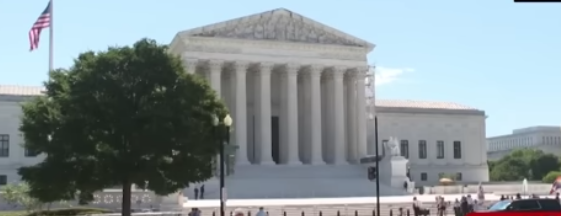Opinion | The author's opinion does not necessarily reflect Sarah Palin's view.
The Supreme Court has agreed to hear the Biden administration’s challenge to Tennessee’s transgender care ban, marking a significant exploration of gender-affirming care issues by the Court.
The state law prohibits certain treatments for transgender minors, with similar bans existing in many states.
“The Supreme Court was always going to have to resolve how state bans on gender-affirming medical care can be reconciled with its approach to sex-based discrimination. Today’s grant sets up this issue as one of the early blockbusters for the Court’s upcoming term,” CNN Supreme Court analyst Steve Vladeck said.
The case, scheduled for the fall, raises key questions around sex-based discrimination and medical decision-making for minors.
“The court holds that when an individual has been found by a court to pose a credible threat to the physical safety of another, that individual may be temporarily disarmed consistent with the Second Amendment,” SCOTUS Blog wrote.
In a separate context, the Supreme Court recently addressed issues related to gun possession and FDA’s authority over abortion-related medication, with rulings that impact firearm laws and reproductive rights.
Chief Justice John Roberts wrote, “Since the founding, our nation’s firearm laws have included provisions preventing individuals who threaten physical harm to others from misusing firearms. As applied to the facts of this case, Section 922(g)(8) fits comfortably within this tradition.”
“Some courts have misunderstood the methodology of our recent Second Amendment cases. These precedents were not meant to suggest a law trapped in amber,” Roberts wrote.
“Why and how the regulation burdens the right are central to this inquiry. For example, if laws at the founding regulated firearm use to address particular problems, that will be a strong indicator that contemporary laws imposing similar restrictions for similar reasons fall within a permissible category of regulations.”
“Under Article III of the Constitution, a plaintiff’s desire to make a drug less available for others does not establish standing to sue. Nor do the plaintiffs’ other standing theories suffice,” Justice Brett Kavanaug wrote.
“The plaintiffs have sincere legal, moral, ideological, and policy objections to elective abortion and to the FDA’s relaxed regulation of mifepristone,” he said. “But under Article III of the Constitution, those kinds of objections alone do not establish a justiciable case or controversy in federal court,” he added.









